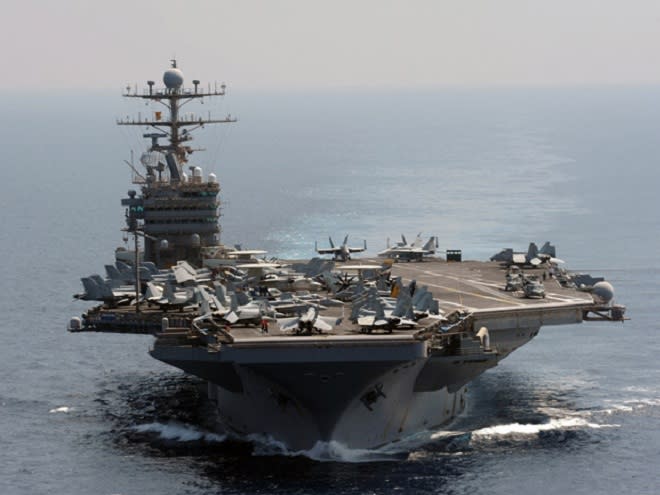 The Envoy
The EnvoyEU bans Iran oil imports

The 27-member European Union voted Monday to ban imports of Iranian oil, and to sanction some transactions with Iran's Central Bank.
The action, passed at a foreign ministers' meeting in Brussels, immediately bars EU member states from signing any new oil contracts with Iran, and orders the phasing out of existing contracts by July 1. The EU-bloc previously constituted the second largest customer for Iranian oil after China.
"I hope Iran will respond positively and will come back to the negotiating table," European Union High Representative for Foreign Policy Catherine Ashton said in announcing the action.
But "given the EU's serious and deepening concerns over the Iranian nuclear programme, the Council today broadened the EU's restrictive measures against that country," the European Union said in an accompanying statement (.pdf).
U.S. Secretary of State Hillary Clinton and Treasury Secretary Tim Geithner welcomed the European action. The measures "are another strong step in the international effort to dramatically increase the pressure on Iran," they said in a joint statement Monday.
Clinton last week had urged Iran to respond to a proposal for new international talks on curbing its nuclear program, or face mounting pressure.
"We all are seeking clarity about the meaning behind Iran's public statements that they are willing to engage, but we have to see a seriousness and sincerity of purpose coming from them," she said at a news conference with her German counterpart Guido Westerwelle at the State Department Friday.
A U.S. official briefed on the effort to execute the Iran oil sanctions told Yahoo News Sunday that the measures are being implemented as world demand for oil is going down, and thus should be able to be phased in without a spike in oil prices. But markets do not always act logically, he noted.
"World demand for oil is going down," the official said. "There is a slowdown in the European economy, the China economy is softening...We are expecting slower growth in Russia and India."
Meantime, he added, as demand is going down, more oil supplies are coming online in places like Libya, Iraq, and Angola. But he noted, "the press, governments and companies don't [always] understand how these contracts work. It's a complicated issue. Contracts need to expire. ... The grades [of oil] from different suppliers are different. So they need to check with their refiners...It takes time."
Separately, the Pentagon said Sunday that a U.S. Navy aircraft carrier, the U.S.S. Abraham Lincoln, had entered the Strait of Hormuz without incident, despite previous Iranian rumblings about closing the Strait, a key energy transport hub.
Meantime, the International Atomic Energy Agency (IAEA) announced Monday that its inspectors would head to Iran at the end of the month.
"A senior IAEA team will visit Iran from 29 to 31 January 2012," the UN atomic watchdog agency said in a statement Monday. "The overall objective of the IAEA is to resolve all outstanding substantive issues."
The IAEA team to Iran will be led by the Deputy Director General for Safeguards, Herman Nackaerts, and will include the Assistant Director General for Policy, Rafael Grossi.
"The Agency team is going to Iran in a constructive spirit, and we trust that Iran will work with us in that same spirit," IAEA Director General Yukiya Amano said."
Other popular Yahoo! News stories:
Want more of our best national security stories? Visit The Envoy or connect with us on Facebook and on Twitter.
Want more politics? Visit The Ticket or connect with us on Facebook, follow us on Twitter, or add us on Tumblr. Handy with a camera? Join our Election 2012 Flickr group to submit your photos of the campaign in action.


